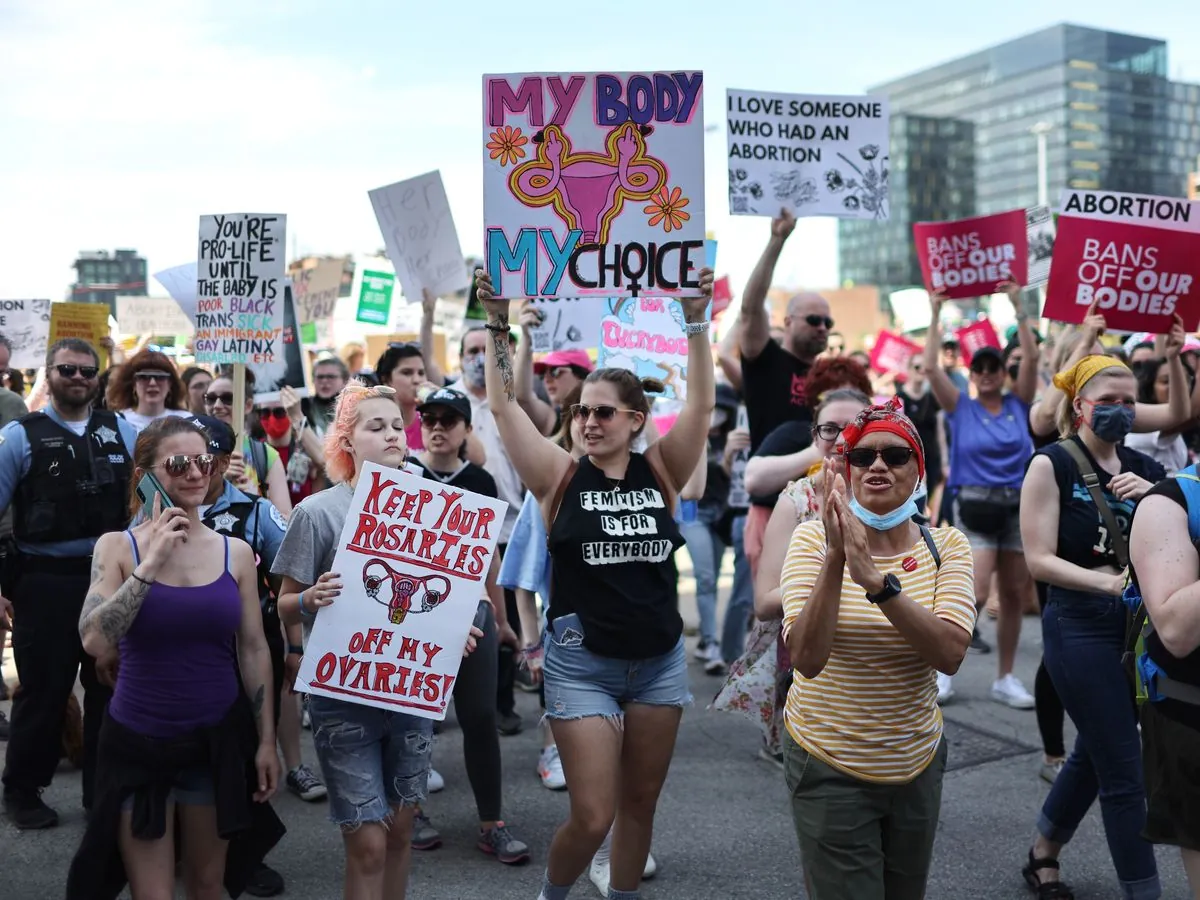GOP Candidates Face Criticism for Approach to Female Voters
Republican politicians, including Donald Trump, struggle to connect with women voters. Recent comments by Trump and Senate candidate Bernie Moreno spark controversy over tone and understanding of women's issues.

In recent campaign events, Republican politicians have faced criticism for their approach to female voters, with comments deemed patronizing and out of touch. This issue has become particularly prominent as the 2024 election cycle progresses, highlighting the GOP's ongoing challenge in appealing to women on key issues.
Donald Trump, the former U.S. president who served from 2017 to 2021, made headlines during a speech in Pennsylvania on September 23, 2024. He positioned himself as a "protector" of women, stating:
"You will no longer be abandoned, lonely or scared. You will no longer be in danger. ... You will no longer have anxiety from all of the problems our country has today. You will be protected, and I will be your protector."
[[Donald Trump's statement to female voters]]
This rhetoric has been criticized by experts as potentially alienating to many women voters. Debbie Walsh, director of the Center for American Women and Politics at Rutgers University, noted that such language might be perceived as patronizing and out of touch with women's actual concerns.
Similarly, Ohio Senate candidate Bernie Moreno faced backlash for comments made during a town hall event on September 20, 2024. Moreno expressed surprise at abortion being a deciding issue for suburban women, particularly those over 50. This remark prompted a sharp response from former UN Ambassador Nikki Haley, who called it "tone-deaf" on social media.
The GOP's struggle to connect with female voters is reflected in recent polling data. A September 2024 AP-NORC poll showed that Vice President Kamala Harris is viewed more favorably by women than Trump, with a significant gender gap in support for both candidates.
This disconnect comes at a crucial time, as the aftermath of the Supreme Court's 2022 decision to overturn Roe v. Wade continues to shape the political landscape. The ruling, which eliminated the federal constitutional right to abortion, has been linked to increased health risks for women in some states, according to investigations by ProPublica.

The Republican approach to women's issues is further complicated by Trump's personal history, including a 2023 jury finding of sexual abuse in a civil case, which he denies. This background, combined with his current campaign rhetoric, presents a challenging narrative for the GOP to navigate.
While Trump's campaign maintains that their message resonates with women's concerns about safety and the economy, critics argue that this approach misses the mark on key issues like reproductive rights. Jennifer Lawless, chair of the politics department at the University of Virginia, described Trump's language as "paternalistic" and out of touch.
As the election approaches, the GOP faces the task of bridging this apparent disconnect with female voters. The party's ability to address women's concerns effectively could prove crucial in battleground states like Pennsylvania, where the gender gap has historically played a significant role in election outcomes.
The ongoing debate reflects broader historical and political trends. Since the ratification of the 19th Amendment in 1920, which granted women the right to vote, the "gender gap" has become a key factor in U.S. elections. Understanding and addressing this gap remains a challenge for political parties, as they navigate evolving social attitudes and policy priorities.
As campaigns progress, the effectiveness of the GOP's strategy in appealing to women voters will be closely watched. The party's ability to adapt its message and address key concerns could significantly impact its performance in the upcoming election.


































